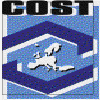NOTE: These pages have been kept as a historical archive. However, no attempt has been made to update the links or information.

EOSS intends to serve as an umbrella, under which various sea-level activities
can be coordinated. The developments in the field of monitoring technology, as
well as the requirements for research and management, urge for an integrated
implementation of technology in sea-level monitoring, and for further
international agreements on data storage and exchange.
The most important outcome of EOSS is expected to be an "organism" that
guarantees and coordinates the long-term monitoring activities and data exchange
along the entire European coastline.
The main objectives for this Action can be subdivided in aspects concerning
the technology of sea-level monitoring, and aspects concerning the management
and research activities that can benefit from improved monitoring capabilities.
The main technological aspects are:
To achieve these objectives, the work is divided into five workpackages. For information on these workpackages, or for information on the project management, please follow the links below:
|
Height reference systems and fixing tide gauge benchmarks |
Mean sea level determination |
Sea surface topography |
Tidal models and storm surge warning |
Storage and exchange of data |
|---|
Click here to download a current address list in MS Word 97 or in ASCII.
Information on this page has been taken from the 'Memorandum of
Understanding for the implementation of a European Concerted Research Action,
designated as COST Action 40 "European Sea-Level Observing System (EOSS)"',
document COST/308/96